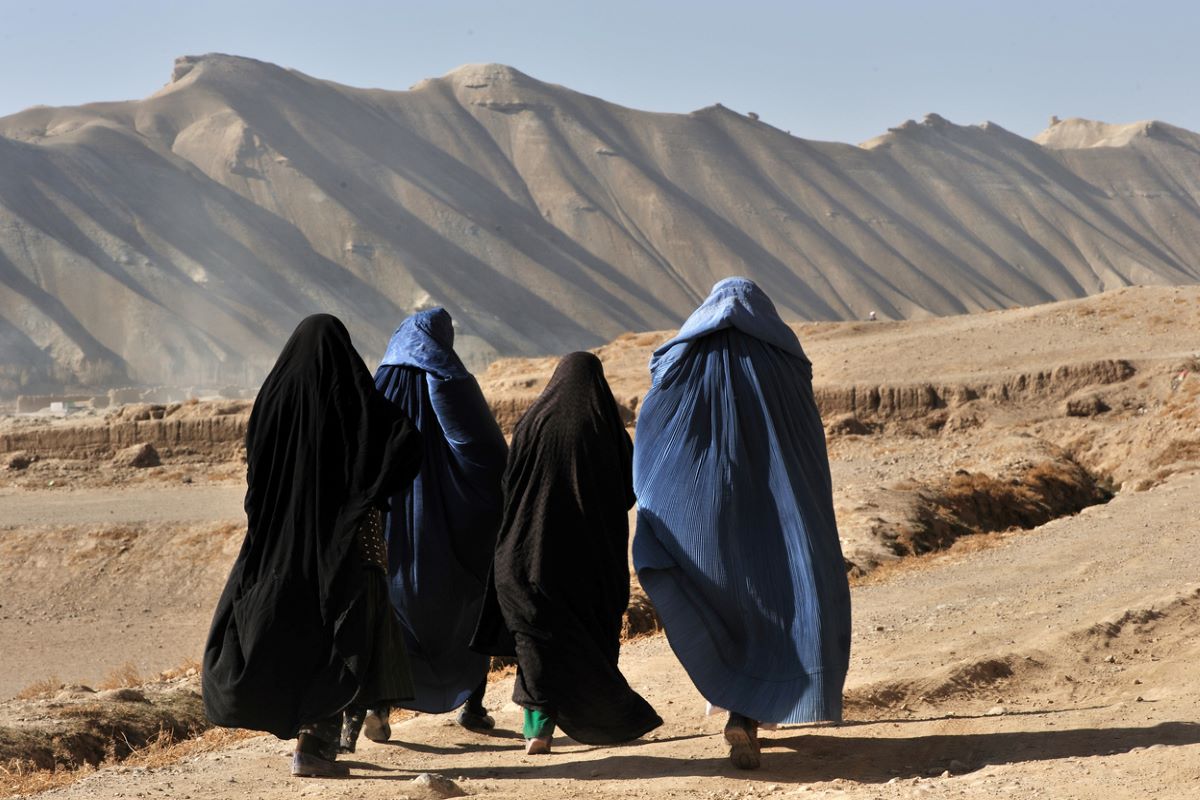Afghanistan’s government of Taliban hardliners has turned the screws yet again on women, despite the initial claim last August that it would pursue a fairly liberal attitude towards women and children. Far from it. Posters have been put up across the embattled country by the so-called Ministry of Promotion of Virtue and Prevention of Vice, directing women to wear the hijab. The directive reinforces the predominantly theocratic construct with the rather stern reminder that Monday’s order is based on the shariat. The nationwide posters and the placards have been justified on the ground that it is obligatory for women to don the hijab. It is pretty obvious that close to six months after being in power, the Taliban is anxious to reclaim its role as the enforcer of Islamic law. Its loop of sartorial policing has been expanded when one reflects that the Ministry has recently imposed restrictions on the behaviour, movement and appearance of women and girls.
More recently, women and girls ~ when unaccompanied by a close male relative ~ have been barred from stepping into coffee shops in the province of Herat. In the reckoning of the hardliners in the government in Kabul, the coffee shops have emerged as a convenient place for most of the moral corruption, in effect misleading the youth most particularly in Herat. Women seeking to travel more than 72 km should be refused transport unless they are accompanied by a close male relative. Not wholly unrelated is last month’s directive of the Taliban, ordering shopowners to cut off the heads of mannequins, insisting that they were un-Islamic.
Monday’s advisory has directed drivers not to play music in their cars carrying women. Still more crucially, drivers have been told not to pick up female passengers, if they are not wearing the hijab, covering the hair. Taliban’s police have erected checkpoints across the capital of Kabul to keep track of taxi drivers and ensure whether they were complying with the government’s orders. Of a piece with these directives is the Taliban decision to shut down all public bathhouses for women in Afghanistan’s northern city of Mazar-e-Sharif. Given the country’s climate, such facilities are deemed crucial not the least because many Afghans do not have access to heating or electricity at home. From wearing of the hijab to the use of bath-houses, the range of directives served by the country’s moral police is suitably severe.
The measures announced are retrograde even at the mildest estimation. To that can be added the short shrift accorded to the girl child’s eagerness to be educated. Not to put too fine a point on it, both women and girls have been given a minor rating in the overall construct. And this precisely could be the impediment towards recognition by the comity of nations. The Taliban is well on its way to proving the worst people believed of it.











